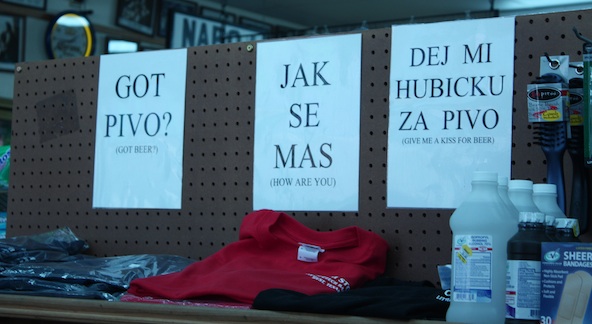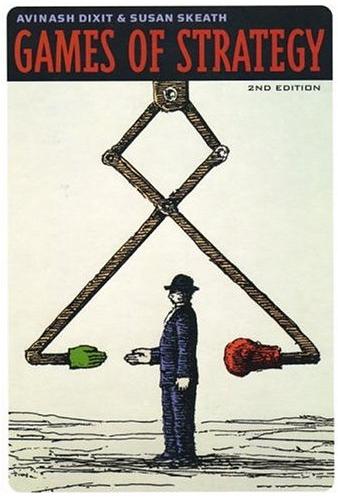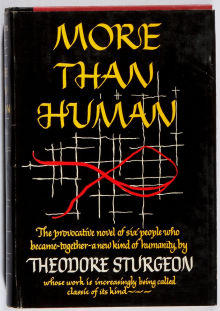Entries Tagged 'Writing' ↓
January 22nd, 2015 — Activism, Agitprop, BarrettBrown, DFW, Digital Ideologies, ExtraMaterial, Texas, Writing
(5 years and 3 months, to be precise.) Okay: Material the media outlet cut from my piece, plus bits of context:
Brown spoke with WhoWhatWhy earlier this week from jail to emphasize the dishonesty with which the authorities have prosecuted him. He referred to his sealed detention hearing, saying the FBI’s agent Allyn Lynd testified under oath that laptop evidence proved the writer admitted to SWATing (placing false 911 calls to get locked-and-loaded police commandos out to a mark’s home). Brown said that not only did Lynd get away with that false allegation—which was at least explicable in that it served as a chief reason the judge denied bail—but the agent also got away with the weird claim that the defendant had lived in the Middle East.
“These people, these prosecutors, these FBI agents have blatantly lied so much,” Brown told us. “They aren’t rookies; these are people who have been around for a long time. So what that tells me—what that should tell everyone—is that they don’t lie for fun; they do it because it works. And the question is, Why does it work? And how bizarre is it that these things work? There doesn’t seem to be any negative feedback to prevent an FBI agent from lying on the stand.”
[…]
The prosecution throughout has twisted words to manufacture a case against his work and, in so doing, a case against what 21st-century journalism stands to become.
Brown, some of whose first writing sales were to America Online during its days as an Internet service provider, has long championed the decentralized, archival Internet as a better means of knowledge-production than the hierarchical media ecosystem where authors and pundits can lie persistently without consequences not unlike his prosecutors. After all, the use of hyperlinks—the primary controversy in his case—allows scrupulous authors and readers to cross-check data and call out errors in great detail.
Once Brown heard of Anonymous and WikiLeaks in 2010, he quickly realized how his crusade could be amped up with access to top-notch secrets and new ways to collaborate digitally. Soon he was giving more and more interviews to the traditional media—some of which the Department of Justice trotted out in court last December—explaining his political ideas and findings about the authorities’ information warfare projects and techniques. Meanwhile, in chat rooms and on social media, he was showing others how to mine state-held business registrations, trademark filings, and press releases so they, too, could turn Anonymous’s hack-leaks into actionable news and analysis. His audience grew and grew.
The government didn’t like that at all. Prosecutors let their motive slip during a 2013 hearing, as first reported by WhoWhatWhy. That was when the Department of Justice made a failed attempt to prevent Brown, while his case was ongoing, from criticizing anyone in the government whatsoever. (They did succeed in gagging him and his lawyers, for several months, from speaking out about his legal battles.)
[…]
Despite the Department of Justice’s hammering of him, Brown has remained steadfastly defiant. Reading his allocution, he told his judge, predictably, “I hope to convince Your Honor that I sincerely regret some of the things that I have done” but added with trademark dry humor: “Like nearly all federal defendants.”


Extra material for WhoWhatWhy “Barrett Brown Sentenced to 5 Years, After Facing More Than a Century” article by Douglas Lucas is licensed under a Creative Commons Attribution-NonCommercial-ShareAlike 3.0 Unported License. It does not affect your fair use rights or my moral rights. You can view the full license (the legalese) here; you can view a human-readable summary of it here. To learn more about Creative Commons, read this article. License based on a work at www.douglaslucas.com. Seeking permissions beyond the scope of this license? Email me: dal@riseup.net.
(5 years and 3 months, to be precise.) Okay: Material the media outlet cut from my piece, plus bits of context: Brown spoke with WhoWhatWhy earlier this week from jail...
April 7th, 2014 — Biz, Culture, DFW, Politics, Publicity, Writing
Today Salon published my and Amy O’Neal’s new article, “Portrait of a failed president: Inside the art of George W. Bush.” As is usual in this industry, they made some changes. So, some extra text and images here for you.
Below are the images buried in the article’s slideshow. (Except for Felipe Calderón, whose portrait I took a picture of, the images come from TheBushCenter’s Flickr.)

Portrait of Tony Blair

Portrait of the Dalai Lama

Portrait of Felipe Calderón

Exhibit wall
While Vladimir Putin’s false-flag bombings of his own Moscow remained in, George H.W. Bush’s connection to the JFK assassination came out. Here’s that text:
He once said he didn’t remember where he was when John F. Kennedy was assasinated, which is like saying you don’t remember where you were when Apollo 11 landed on the moon or the twin towers came down. As journalist Russ Baker’s thorough book Family of Secrets reveals, Poppy was actually in Dallas the day before and probably the morning of November 22, 1963, when military intelligence figures led Kennedy’s motorcade to its fate. Poppy was also a friend of George de Mohrenschildt, Lee Harvey Oswald’s handler, and closely tied to Allen Dulles, whom JFK removed from the CIA directorship. Not to mention Poppy’s ties to Texas oil barons whose tax breaks JFK wanted to end. Draw your own conclusions about this “gentle soul.”
Also I want to note that Bush raised more than half a billion dollars for the complex. Presidents raise money for their libraries while in office (as well as after), which means the fundraising is an opportunity for influence to be exerted. Even foreign leaders can give sitting presidents secret donations for their libraries.


Extra material for Salon George W. Bush painting article by Douglas Lucas is licensed under a Creative Commons Attribution-NonCommercial-ShareAlike 3.0 Unported License. It does not affect your fair use rights or my moral rights. You can view the full license (the legalese) here; you can view a human-readable summary of it here. To learn more about Creative Commons, read this article. License based on a work at www.douglaslucas.com. Seeking permissions beyond the scope of this license? Email me: dal@riseup.net.
Today Salon published my and Amy O’Neal’s new article, “Portrait of a failed president: Inside the art of George W. Bush.” As is usual in this industry, they made some...
November 21st, 2013 — Activism, Culture, Digital Ideologies, JeremyHammond, NYC, Politics, Publicity, Stratfor, WikiLeaks, Writing

My speech at Foley Square
On November 15, hacktivist Jeremy Hammond was unjustly sentenced to ten years in prison for, among other actions, hacking confidential emails out of the Austin-based private intelligence firm Stratfor. WikiLeaks published these emails as the Global Intelligence Files. I’ve been researching them intensively for more than a year, and have published two articles on my research at WhoWhatWhy, one on General David Petraeus and one on the Drug Enforcement Administration’s Special Operations Division seeking White House permission to kill Mexican drug lord El Chapo. That second also includes a lot of my research into Stratfor’s informants and clients.
The day of Jeremy’s sentencing hearing, I gave a speech at Foley Square outside the courtroom and some interviews about the value of the Stratfor leak. The leak will continue to benefit researchers for years and years. Journalist Chris Hedges (Wikipedia), journalist Alexa O’Brien (Website, Twitter), and defense attorney Jay Leiderman (Website, Twitter) also spoke at Foley Square.
If you want the short version, check out this interview of me conducted by Jeff Durkin (Twitter) of We Are Change Connecticut (Website, YouTube). It was right after the speech. The interview is about seven minutes long and came out really well.
If you want the long version, here is a video of all four speeches and more by Small Affair (Twitter, Tumblr, Donate, Occupy the Stage). My part is from 36:00 minutes to 49:30. Small Affair also took the picture at the top of this post. Below the video is the prepared text of my speech.
[wposflv src=https://douglaslucas.com/FreeJeremySpeeches.flv previewimage=https://douglaslucas.com/blog/wp-content/uploads/2013/11/DALStratforSpeech.jpg width=400 height=325 title=”Free Jeremy Speeches”]
This morning we saw young but longtime hacker and political activist Jeremy Hammond unjustly sentenced to ten years in prison for, among other actions, hacking confidential emails out of the Austin-based private intelligence firm Stratfor, the leak of which WikiLeaks is now publishing. The five million-plus emails Jeremy provided to us through WikiLeaks span 2004 to 2011 and consist of internal and external correspondence, files, and records of the firm’s analysts, spies, executives, writers, and other employees.
I want to talk for a few minutes about why what Jeremy did has been and will continue be so beneficial to us—that is, I want to talk about the value of the Stratfor leak, which is Jeremy’s contribution to what we can call the historical record or humankind’s knowledge repository or simply just the Internet. For more than a year, I’ve been intensively researching the complete cache of Stratfor documents in WikiLeaks’ possession. I’ve published two in-depth articles at WhoWhatWhy using my research, have a third coming out soon there, and many more in the works.
When WikiLeaks began publishing the Stratfor leak, which it calls the Global Intelligence Files, much of the reaction from the US mainstream media was dismissive. The Atlantic published an article the same day WikiLeaks announced the leak, titled “Stratfor Is a Joke and So Is WikiLeaks for Taking It Seriously.” The Atlantic writer, of course, did not read the five million-plus emails. Rather, he was probably acquainted with Stratfor’s free email newsletter reports and media appearances and was itching to discredit WikiLeaks and its source, who we now know was Jeremy. But what the Atlantic writer was acquainted with was just the surface of Stratfor.
The firm does so much more. In the 2004 to 2011 time span the leak covers, Stratfor provided training and created custom intelligence products—reports, predictions, assessments—for big corporations such as Hunt Oil, National Oilwell Varco, Parker Drilling, Lockheed Martin, Dow Chemical, and for government arms such as the Defense Intelligence Agency, the Department of Homeland Security, the US Marines, and many more. These people weren’t reading the free email newsletter reports. They were buying intelligence products such as Stratfor’s Yemen attack database, in which Stratfor catalogued incidents of violence in Yemen with precise information such as GPS coordinates. They were, in Emerson Electric’s case, paying more than a hundred and fifty thousand dollars a year for phone and email access to Stratfor employees who would brief them on political, economic, and security factors affecting their operations. So much of the information Stratfor was providing these clients is available to us now thanks to Jeremy, and most of it hasn’t been researched yet.
National security journalist Joshua Foust said this week that Stratfor isn’t that much different from a private investigator. P.I.s don’t have the clientele I just listed. They also don’t have Stratfor’s informants, who included Israeli Prime Minister Benjamin Netanyahu, Mexican diplomat Fernando de la Mora Salcedo, and DEA supervisor William F. Dionne, whom I interviewed and who provided Stratfor information off JWICS, a top-secret US government computer network. Much of what these informants were telling Stratfor is available in the leak, again thanks to Jeremy, and most of it, again, hasn’t been researched yet. So we still don’t yet know the full extent of Jeremy’s contribution.
Joshua Foust also said this week that the Stratfor emails “weren’t surprising” for people in the know. That’s false. And he said “weren’t surprising” as if the leak is already over. We’ve barely scratched the surface. The mainstream media in the US doesn’t want to research the information I’ve been describing, they’re not familiar with it, they don’t care. They bash Jeremy’s contribution on the one hand, but on the other hand, the New York Times (as documented by the NYT Examiner), NPR, and other news organizations collaborate or share information with Stratfor behind the scenes. That’s the US mainstream media for you, hypocritical. Turn them off.
There are easily decades’ worth of research remaining for the Stratfor documents. Not only are there more than five million emails, but many of them have PDF attachments of up to hundreds of pages each. Examples of these attachments include intelligence bulletins from the Drug Enforcement Administration’s El Paso Intelligence Center, Texas Department of Public Safety threat assessments and situation reports, and intelligence products created by Department of Homeland Security state fusion centers. There are even intelligence products created by Stratfor competitors whom the firm was studying such as Total Intelligence Solutions, the Institute of Terrorism Research and Response, and Oxford Analytica. So Jeremy didn’t just provide us with information from Stratfor, but also from other private intelligence firms and government intelligence organizations. Again, most of this material hasn’t been researched yet.
But here are some of the greatest hits of what has been uncovered so far.
The previously unknown Trapwire surveillance system was one of the biggest Stratfor revelations. This company with CIA ties developed software for CCTV cameras that identifies or supposedly identifies suspicious behavior and manages and cross-references suspicious behavior reports from different locations and time periods. It also integrates information from license plate readers and other surveillance inputs. Trapwire has been deployed in DC, Seattle, LA, Las Vegas casinos, Atlanta, the London Stock Exchange, and right here in the NYC subways, 500 cameras’ worth according to Stratfor in 2010. If someone “sees something, says something” about you in a New York subway, your “suspicious activity report” possibly goes to TrapWire. Thanks to Jeremy, we better understand mass surveillance, which is crucial, because giving the people who brought us mass incarceration, more than two million people behind bars in the US, the technology to incriminate anyone, whether rival politicians or ordinary citizens, is obviously an immense threat to freedom.
My work at WhoWhatWhy on the Stratfor documents, thanks to Jeremy, includes an article about General David Petraeus, whom Stratfor shows was probably having an extramarital affair prior to previously known, which besides possibly being a military offense, suggests his mistress Paula Broadwell, who was an intelligence officer, may have had him in her crosshairs for a long time. That makes more sense of Petraeus’s downfall from the CIA and gives a better picture of internal government struggles. Another article of mine is on the Drug Enforcement Administration’s Special Operations Division seeking White House permission to assassinate Mexican drug lords. That’s a picture of the increasing militarization of law enforcement and the possible broadening of US assassination policy to merge the war on drugs with the war on terror–a push for a so-called “narcoterrorism” policy. Later this month WhoWhatWhy will publish another Stratfor article of mine of Mexican military presence in the US and US military presence in Mexico. Thanks, Jeremy.
Another contribution of his are the revelations in the media outlet Narco News about the US and Mexican governments easing the path for certain cartels to traffic drugs into the country. Instead of improving the Mexican economy so poor people don’t join cartels or legalizing drugs, the US and Mexican governments pick favorites among drug cartels in hopes that a preferred balance of power among them will reduce the drug war violence. Meanwhile they arrest people for smoking pot. This is a picture of what the drug war really is. And I’ve seen in my research that even Congresspeople are listening to Stratfor on so-called narcoterrorism issues.
Thanks to Jeremy, we learned private intelligence was looking for connections between Alexa O’Brien’s campaign finance reform group US Day of Rage and Islamic fundamentalism, which of course carries the threat of Alexa being smeared as a terrorist. That particular Stratfor memo was cited in her and Chris Hedges’ court case against indefinite detention that went to the Supreme Court. We also learned thanks to Jeremy that the Department of Justice has a sealed indictment against Julian Assange of WikiLeaks, indicating the severity of the US government’s efforts against journalists and the Internet. This revelation was cited by Assange in an affidavit to Swedish police.
There are plenty of other revelations in the Stratfor documents. Those are just some of the greatest hits. You can get involved researching the Stratfor documents yourself. Look them up on the WikiLeaks website, where there is a search engine to look through them.
You might say, Okay, so we grabbed a few headlines, and maybe a few legal documents benefitted, but what’s the use, what does it all add up to? We know Jeremy’s legal case was unjust. The FBI knew Stratfor was being hacked for weeks and did not stop it, and entrapped Jeremy through their informant Sabu. Judge Preska denied Jeremy bail wrongfully. And the sentencing is irrational: if Jeremy had broken into the Stratfor building in Austin and walked off with hard drives, he might have a prison sentence of only about a year. There were other actions he did, but since the US government is cracking down on the Internet and journalists and their sources, he’s stuck with a much more severe sentence. So now he’s in prison. Are the news headlines, past and future, worth that? He says so, but are they really?
Yes. For one, these revelations are examples of why more and more people are ceasing to take the US government and traditional politics seriously. The fewer people trust in the Democratic Party, the better. People who grow disgusted with the System as a result of revelations such as these will begin to look to themselves and solidarity for solutions. Solutions such as the commons or mutual aid. Instead of trying to reform or overthrow the government, we can simply practice governance. Internet technology is a tool that makes mass collaboration for mass self-govenance possible, which is something Heather Marsh writes about, if you know her work. If not, read it.
The best way to look at what Jeremy did is to see it as a permanent contribution to humankind’s knowledge base, our knowledge base, the Internet. Think about checking your phone to look something up. We all know what it’s like to look something up online and find an answer, and we all know what it’s like to feel grateful when we find an especially good answer. That’s the sort of gratitude we should feel toward Jeremy. He improved our knowledge; he’s given us better answers, and they are answers about some of the most important things: what the powers who try to control us are doing. With better information, we can make better decisions and govern our own lives.
Fundamentally, Stratfor is a profit-driven business. It influences big business, government, and the media. It’s an organ of the powerful, but despite its power over all our lives, Stratfor’s employees are not vetted by the people and it’s not open to Freedom of Information Act requests. The knowledge it held between 2004 and 2011 was locked up behind closed doors.
But Jeremy freed it. For that, journalists owe him hard work researching the Stratfor documents, and we all owe him our thanks.
That evening, Vivien Weisman (Twitter) interviewed me about Barrett Brown and my Stratfor research to include in her upcoming documentary The Reality Wars, which is about hacktivists.
Also that evening, I was interviewed on Lorax Live (Website, AnonOps Radio, Twitter, Facebook) about the value of the Stratfor leak. The audio is not online yet, but I will update this page when it is.


The Value of the Stratfor Leak by Douglas Lucas is licensed under a Creative Commons Attribution-NonCommercial-ShareAlike 3.0 Unported License. It does not affect your fair use rights or my moral rights. You can view the full license (the legalese) here; you can view a human-readable summary of it here. To learn more about Creative Commons, read this article. License based on a work at www.douglaslucas.com. Seeking permissions beyond the scope of this license? Email me: dal@riseup.net.
My speech at Foley Square On November 15, hacktivist Jeremy Hammond was unjustly sentenced to ten years in prison for, among other actions, hacking confidential emails out of the Austin-based...
September 12th, 2012 — Creative Writing, DFW, Digital Ideologies, Dreams, Friends, Personality, Philosophy, Psychology, Writing

What do you want?
Googling “how to reduce the need for affection” doesn’t turn up all that much, and if you ask your friends, they’re just gonna laugh at you. Until weeks later, after they’ve been ditched by whomever it was for them that month, and they come to you, tail between legs, asking “Hey…did you ever find out how to reduce the need for affection?” This has happened to me multiple times!
In researching reducing the need for affection, I’ve come across plenty of articles that try to dodge the issue by avoiding the word “affection.” They claim people are seeking “attention” or “prestige” or “approval” or some other medical-sounding reward. But I think the situation is a lot hotter than that, and by hot I mean a warm fuzzy HUG — get your mind out of the gutter.
A lot of the search results you DO get (YGMV*) are content-farm articles on how to spay or neuter your pet (…so that’s what they’re calling it now?) or y so srs/pitiful pieces in the Huffington Post about how to make your man show you more affection (…she really hasn’t figured that out yet?). I lost the very few useful links I came across. But here’s what I’ve discovered:
- Get busy working on an idealistic project(s).
- Get a pet (this is more of a hack: route around humans).
- Get lost. Aloneness becomes a more comfortable habit given time.
And keep in mind this Theodore Sturgeon quote from his novel Godbody, which the character Britt Svenglund ascribes to the character Dan Currier: “any person who cannot be by himself, it’s because when he is by himself he thinks he is not in good company.”
In the last year, I’ve been in a totally unprecedented situation: I’ve had lots of friends! And I’ve conducted a lot of socializing. (Mostly at this excellent coffeehouse & computer repair shop in Fort Worth.) The whole experience startled me. “Wow, so this is what all the people I hated in high school were doing!” It gets so thoroughly, disgustingly addictive. You wake up one day, and your emotions are beseeching the universe to deliver you affection from others. Your long-lasting contributions to humanity? Yeah, screw those. WAIT NO!
You have to consciously pull yourself away if you get addicted. (Twitter, I’m looking at you.)
Now, you might not want to become a recluse. Currently you gotta interact with people to get where you want to go in life, and it turns out social skills are useful for that. Plus, a good social space generates good random. You encounter people who give you knowledge and paying gigs and culture. This happens in cyberspace, too, but it happens differently in meatspace; I’m not sure how to describe the difference, or why both are valuable.

Brain in a Vat Doesn’t Need Your Meatspace (Pic stolen from here).
A pickup artist is going to look at people with alleged affection-deficits and offer to teach them how to acquire more affection. Which, when you think about it, is not unlike a nicer (or at least nicer-sounding) Thrasymachus, who (according to Plato) taught that justice is nothing but “the advantage of the stronger.” (In the fifth century BCE, in ancient Greece, you could buy teachings from sophists such as Thrasymachus. Early-day Tony Robbins.) Pickup artists have a term: One-itis. Urban Dictionary as usual has the best definition:
Often confused with love, this is the feeling that a particular woman is actually special. This is just an illusion; she is the same as the other three or so billion. “Go fuck ten other women” is the most commonly prescribed treatment for this “disease” (hence the “itis”), as it tends to show quite quickly how very alike people are.
But everyone is a special snowflake, dammit (srsly, you are. And aren’t at the same time, too. Paradox WOAH!). Anyway, it is just remarkable, the difference in perspective, when faced with the question: “What do I do about my affection-deficit?” 1) Become more skilled at manipulating people into giving you affection; or 2) Reduce the need for affection. I’ll take option 2.
Not so fast, the psychiatrists are here. They describe “the self-effacing solution” of wanting too much affection, and the resignation solution of (among others) schizotypals wherein you want too little. Oh, good, the psychiatrists left. Continuing on.
Once I was chatting online with someone, importuning the person for attention affection, and found myself rebuffed; instantly my mind generated epic narratives about how they were full of shit and one day, despite my anger and bitterness, I would triumph before all! AT THE EXACT SAME TIME in another chat window someone was importuning me for attention affection, all plaintive, and I was like, geez, this person’s annoying, won’t they go away, like srsly. Humans are up to here in this affection-acquiring attention-economy business. It’s the pits.
So you want the golden mean of affection and social interaction that suits your purposes and not the purposes your addictions or inexperience define for you. (A golden mean is not necessarily in the middle of the continuum, and not necessarily any sort of average.) On the other hand, maybe you’re such an awesome mystic that you flat-out don’t need to interact with others at all. In which case … can we meet?
INTERLUDE. Let’s take a break for a second.
* YGMV: Your Google May Vary, depending of factors such as your IP address. Which is one reason why proxy networks such as Tor are fun: “Today I’m gonna Google from the point of view of someone in the Czech Republic. Podívejte!“
Writing this I found out there’s a now-defunct Swedish goth metal band called Beseech.

They appear not to want my affection…but is it a reverse psychology trick?
Beseech covered ABBA’s “Gimme! Gimme! Gimme! (A Man After Midnight)” which is both awesome and horrible, and most fitting for this post.
Half past twelve / And I’m watching the late show in my flat all alone / How I hate to spend the evening on my own! … [Yeah I can’t take any more of this either.]
END INTERLUDE. Back to srs bizns.
I should point out that killing a social addiction is most conducive to creative thought. Which is much more useful to the world and (less important) much more happiness-producing than nightlife. What other people think really gets into you and mucks with your invention wellspring. Of course, not so good to invent something without people in it, so at least say hi to somebody today, okay? Or maybe just this week. (Even if just online ;-)


How to Reduce the Need for Affection by Douglas Lucas is licensed under a Creative Commons Attribution-NonCommercial-ShareAlike 3.0 Unported License. Based on a work at www.douglaslucas.com. Seeking permissions beyond the scope of this license? Email me: dal@riseup.net.
What do you want? Googling “how to reduce the need for affection” doesn’t turn up all that much, and if you ask your friends, they’re just gonna laugh at you....
September 4th, 2012 — Activism, Creative Writing, Culture, Fiction, Philosophy, Politics, Psychology, Religion, Writing
A lot of people I’ve recently met center their lives around winning games, with scoring casual sex encounters as one of the main ones. In this Interview with Pickup Artist Chaser Clarisse Thorn, the interviewer, whom the answer-ready Clarisse just barrels over, splashing her slang about One-itis and strategic ambiguity and outcome independence, asks: “Must everything be framed in terms of a game? What if […] You want to opt-out of that worldview?”
Clarisse answers by saying everyone’s playing games regardless of whatever nobility they affect.

Protester nobly not playing a game; opting-out or super-rational opting in?
One guy I know who regards himself as a skilled pick-up artist (or, as their lingo has it, a PUA) denigrated a certain other person who likes to read books in public by saying the person reads books in public for the sake of appearing broody to women. Maybe the reader just likes to read books. Anyway, the guy writes off men who do not optimize for the degree of social success he regards as advisable by saying these broody idealists have lost so many social games that now they’re just bitter. (As if bitterness alone is damning.) That’s often partly true, I believe, but by not thinking further he’s foreclosing himself from understanding a dimension of human experience that for him just isn’t salient.
I think practicing idealists — let’s say good artists and whistleblowers for specificity — share something: they intentionally lose games in order to create new realities. Think about whistleblower and soldier Joe Darby who exposed the abuses at Abu Ghraib — which included the gruesome CIA-assisted murder of “ghost prisoner” Manadel al-Jamdi. As recounted in Phil Zimbardo’s excellent book The Lucifer Effect (p.476-77), Darby said the abuse he witnessed
“just didn’t sit right with me. I couldn’t stop thinking about it. After about three days, I made a decision to turn the pictures in. You have to understand: I’m not the kind of guy to rat somebody out….But this crossed the line to me. I had the choice between what I knew was morally right and my loyalty to other soldiers. I couldn’t have it both ways.”
After retaliation by Secretary of Defense Donald Rumsfeld, Darby “was whisked away, and eventually concealed in military protective custody for the next several years.”
“But I don’t regret any of it,” Darby said recently. “I made my peace with the decision before I turned the pictures in. I knew that if people found out that it was me, I wouldn’t be liked.”
“For many,” Zimbardo writes, “Darby’s calling attention to the abuses was unpatriotic, un-American, and even faintly treasonous. ‘Hero a Two-Timing Rat,’ ran a headline in the New York Post. [… Darby] was unable to accept [a Presidential Citation honor from the American Psychological Association] because he, his wife, and his mother had to remain in military protective custody for several years in the wake of the many retaliation threats they received.”
The game, the incentives lined up for Darby did not offer him victory for whistleblowing. He decided it was more important to create a new reality wherein injustice at Abu Ghraib had a better chance of being righted. These are the kind of people, I think, that pickup artists write off as merely being bitter. (Note the mainstream media’s dogged efforts to reduce idealist Bradley Manning’s motives to social frustration.)
Another guy I know defended Joe Paterno for not doing enough about the Penn State child sex abuse scandal. This guy said Paterno was being paid well, and when you are being paid well, you can’t be expected to risk things; he also said it with a wink wink, nudge nudge attitude that conveyed “Mature people in the know agree with me.” He is a popular, cheerful young man who is solidly liberal, solidly Democrat. His attitude that maturity consists in surrendering ideals belongs to the feel-good pickup artistry of political and social marketing: Romney’s RNC speech, Obama’s speeches, The Daily Show, TED Talks. The content is irrelevant here; the truth or falsehood or the value of a particular Daily Show joke or Romney claim is irrelevant here. What I am saying is that the way marketers prioritize making the audience feel good higher than the content is most dangerous. We have a world where marketing and appearance trump reality and truth-telling to such an extent that anyone who prefers the latter over the former is cast off as immature and bitter before they are even listened to. But how are you supposed to report CIA torture? With a laughtrack?
Good artists work the same way, though not in the conscious decision-making manner of whistleblowers. By a sort of instinct, good artists wind up rejecting the incentives the main of the art market offers them and create not ossified things but new and therefore real things. New realities. Creative writing is good to the extent that writers allow themselves to live fully while writing; that reality pays off in the voice or tone of the piece, which reminds readers not to trust in appearance but rather in reality. Somebody might be reading a book in public to remind himself of that.
You could ask, though — what is the difference between perception-management (a negative term for a component of marketing: managing consumer or voter perceptions) and putting your best foot forward? After all, many of the techniques pickup artists teach are useful social skills to learn, just amped up and repurposed for sexual conquest. And though the horizon for contributing to humanity anonymously (see these to learn more) is improving, people pretty much still need to interact with others to get where they want to go.
When you put your best foot forward, you are primarily allowing people to perceive you of their own accord, rather than emphasizing your manipulation of consumer and voter perceptions. I say emphasize because of course people are always managing perceptions by picking out what outfit they want to look good in today, etc. But it is when appearance overtakes reality that you have a problem. Especially if you can no longer tell the difference between the two. The phenomenological difference between them in first-person experience is real, I think. I’m not entirely sure. More than one slightly ashamed person in a private moment has asked me how they can make themselves more authentic. Maybe I am bitter, but I never know how to answer that question, because it is a problem I’ve never really had.


I Hate Game Theory by Douglas Lucas is licensed under a Creative Commons Attribution-NonCommercial-ShareAlike 3.0 Unported License. Based on a work at www.douglaslucas.com. Seeking permissions beyond the scope of this license? Email me: dal@riseup.net.
I have yet to read this book A lot of people I’ve recently met center their lives around winning games, with scoring casual sex encounters as one of the main...
May 5th, 2012 — Politics, Writing
Guru.com is a website that serves as a middleman for freelancers and people wanting to hire them. About a month ago I noticed this ad:
Title: Political Rant I
Project ID: 820169
Budget: Not Sure/Confidential
Category: Writing, Editing & Translation
Description: Looking for freelance writers to produce humorous/sarcastic in nature rants (mostly political in nature) at the demand of the client. Clients will provide the subject material or target of the rant. What we would like to see is an ability to use the facts to make your point in a humorous/sarcastic fashion within a quarter page our less (not interested in character assassination). We are a start-up web base business offering a unique form of stress relief to the politically frustrated. We would eventually like to have three (3) writers work represented on our site for clients to choose from. All interested individuals should provide a location where your work maybe viewed, injection of humor is a must and please include pricing. This is a start up and we do not have an open date but are aggressively working to establish one.
Ad was placed by some outfit (not sure who) apparently based in Cedar Park, Texas. It received 26 proposals from freelancers.


Startup Seeks Mercenary Character Assassin by Douglas Lucas is licensed under a Creative Commons Attribution-NonCommercial-ShareAlike 3.0 Unported License. Based on a work at www.douglaslucas.com. Seeking permissions beyond the scope of this license? Email me: dal@douglaslucas.com.
By Rev. Xanatos Satanicos Bombasticos (ClintJCL) Guru.com is a website that serves as a middleman for freelancers and people wanting to hire them. About a month ago I noticed this...















 Twitter:
Twitter:
Join the conversation